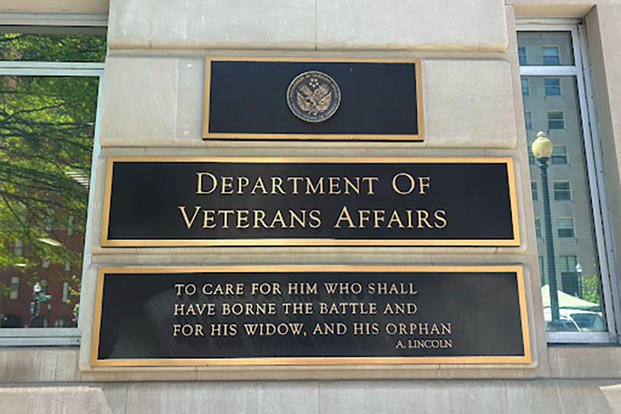The Department of Veterans Affairs is undertaking a radical reorganization, one that Trump administration officials say will better serve veterans by emphasizing automation and goals of efficiency, paired with plans for tens of thousands of layoffs.
Veterans overwhelmingly believe the VA needs urgent reforms focused on speed, accessibility and responsiveness. They are calling for streamlined processes, more staff focused on customer service, extended referral windows and leadership that prioritizes meaningful structural reform over workforce cuts.
From long call-wait times to referral systems that often expire before receiving full care, veterans across the country say the VA needs urgent reform to deliver health care faster and make sure they get the care they need.
“It’s still a struggle, though, because it’s big government run so it’s full of all kinds of bureaucracy things that take way longer than they should,” said Dan Pogue, a 20-year veteran of the Army special forces and one of five veterans who spoke to Military.com about their hopes for the reform effort.
After retiring in 2022, Pogue quickly learned the frustrations of limited access to VA care while now living in a rural area.
“For example, like my back, which is one of the things I was medically retired from the military,” he said. “They don’t have any doctors here locally at the VA clinic that [I] can be seen by, so it’s [a] referral to outside clinics, and in my case, it’s in a town an hour south of me.”
Pogue said he receives automated responses when calling help lines, making it difficult to get answers while navigating a complex medical system.
Like many other veterans, Rick Howell, an Army veteran of 26 years, wants the new leaders to streamline and improve health care. “Hopefully they’re going in the direction of finding people that want to come into work and actually [be] face to face and be customer service oriented.”
Howell spent most of his military career serving in airborne operations. He retired overseas and did not use VA care until nearly a decade later when he visited a clinic in Virginia. “When you retire overseas, you don’t really get much of an education on, ‘Hey, here’s what the VA can do for you,'” Howell said.
On Feb. 13, the VA dismissed 1,000 employees, which was projected to save $98 million annually. The Trump administration claimed the savings would be redirected to VA health care, benefits and services, according to the VA. And on Feb. 24, the department also dismissed 1,400 probationary employees. The agency said it saved $83 million that would go directly to VA beneficiaries. Those are just the opening salvos in a plan to cut upward of 83,000 VA employees.
“I think what they’re trying to do is cut the redundancy out of some of the systems,” Howell said. “But they have been very slow with everything for me, nonresponsive, people not answering the phone.”
Brian Seidl, who served 21 years in the Army, retired in 2024 following rapid-onset autoimmune inflammatory arthritis. After retiring, he moved frequently for work, relying on the traveling veteran program before securing a primary-care provider.
“During my medical retirement, I had a VA [veterans service officer] that worked with the Wounded Warrior Foundation and ensured I was set up for success with all VA benefits prior to my retirement,” Seidl recalled. “Absolutely no lapse in pay on the VA side; I highly recommend that everyone works with a VSO while still on active duty.”
The referral process, however, has been challenging.
“I had the hand surgeon request surgery on my left wrist in October 2024, only to find out my referral expired, and I had to start the process over,” he said. “Anything not specified in the referral takes a very long time if a surgeon has to request approval from the VA.”
Seidl emphasized the need for improvements, citing long hold times averaging 40 minutes and inefficiencies in processing compensation and back pay. He also suggested extending the six-month referral period to 12 months for better care coordination.
Still, he remains grateful for the care he’s received, paying nothing out of pocket for major procedures, imaging, a mobility scooter and occupational therapy support.
Jesus Ramirez, who retired from the Army with 100% disability, said the services during procedures have been “outstanding.” But delays in scheduling care persist. “For example, right now, the frustrating part with them is my dental; they’re at capacity so the VA has to send me out of the VA system,” he said.
Experts argue that meaningful reform requires more than internal adjustments; it demands committed leadership and structural change. Suzanne Gordon, senior policy analyst at the nonprofit, nonpartisan Veterans Healthcare Policy Institute, criticized the Trump administration’s approach to restructuring the VA, particularly downsizing.
“There’s been hiring freezes [and] huge attacks on VA staff and unions under the Trump administration,” Gordon said. “If you fire everybody and cut 20% of the workforce, it’s not going to solve the problem. It’s going to make it worse.”
She outlined goals for the new leadership.
“It’s the largest health-care system in the country, and one of the most complex,” she said. “Because it’s supervised by Congress, the person has to have a lot of political skill and a lot of clinical understanding, not only of medicine and mental health, but what we call social determinants of health like poverty and employment.”
Bridget Erin Craig is a graduate student at Northwestern University’s Medill School of Journalism in the politics, policy and foreign affairs specialization, focused on defense and veterans affairs reporting. She graduated with a bachelor’s degree from the University of Miami in political science, criminology and sustainable development.
Story Continues
Read the full article here

